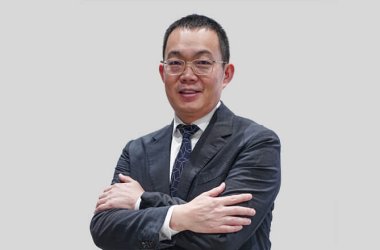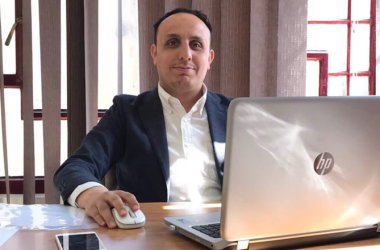We began by examining the impact the COVID-19 pandemic has had on global industry, and how it irreversibly reshaped when we work, how we work and where we work. Shi highlighted how the pandemic had triggered an avalanche of digital transformation across the region which has forced enterprises to transform the way they work.
“This has led both governments and enterprises to accelerate their digital transformation journey. The adoption of advanced technologies and associated ways of working will continue to influence the post-pandemic workplace. The future workplace will be a digital workplace in the post-COVID world, one that enables employees to work more seamlessly both offline and online.”
Shi then touched on how major industries such as Healthcare, Education, Energy, Finance and Transportation had been revolutionised by digital transformation and the pivotal role Huawei is playing in terms of leveraging their expertise to enable these industries.
“In the field of healthcare, for example, doctors are using robots to keep a safe distance while helping patients. Educational institutes are turning to trusted ICT experts like Huawei to amplify their digital facilities and enhance the virtual classroom experience,” said Shi.
He added that Huawei provides a wide range of solutions that foster collaboration between teachers, students, parents, and school administrators, regardless of their time zone or physical location. He then spoke of the changes in the energy, finance and transportation industries.
“In today’s environment, there is an enormous opportunity for oil and gas companies to revitalise and push for real gains as the economy recovers from COVID-19. In finance, it is forecasted that COVID-19 will change user behaviour forever, and that the increased use of digital banking will become an irreversible requirement. Digital transformation of the transport sector, via robust communications solutions, will enable the sector to evolve in sync with the city around it.” said Shi.
Shi then spoke of the enormous cloud presence Huawei has established globally and focused on the impact AI technologies will have in transforming major business processes.
“Huawei has established 23 cloud service regions worldwide, attracting over 1.5 million developers. We will continue to build on that momentum with our partners. In the AI domain, we must strive to better integrate with the major business systems of governments and enterprises. This requires using shared data to build the core competency of AI systems” said Shi.
I asked Shi how significant events like EXPO 2020 and GITEX are for the Middle East region in terms of showcasing its capabilities as a bastion of technological progress and innovation, and what role Huawei will play to support future GCC events.
“For our part, Huawei has been a close partner to numerous conferences this year. Conferences such as the Global Cybersecurity Forum, the Global AI Summit, and GITEX Technology Week, are all a testament to the region’s ambitions to build a more connected future.”
“Taking GITEX Technology Week as an example, we are leveraging this event as a platform to discuss with our customers and partners how we can navigate industry changes, share experiences, and work together to create new value. At this year’s event, we are exploring trends and opportunities in industry digitalisation by showcasing advanced technologies and solutions, all while giving visitors a look at joint innovation and sharing best practices in digital transformation,” concluded Shi.





